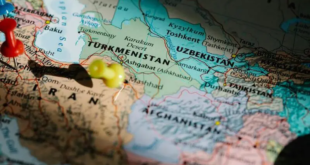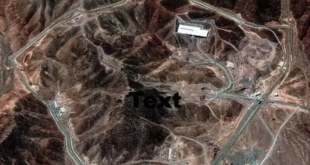 TEHRAN (FNA)- The UN atomic watchdog’s deputy director general, Olli Heinonen, arrived in Tehran on Thursday for two days of talks on Iran’s nuclear program, a source in the Iranian atomic energy organization said.
TEHRAN (FNA)- The UN atomic watchdog’s deputy director general, Olli Heinonen, arrived in Tehran on Thursday for two days of talks on Iran’s nuclear program, a source in the Iranian atomic energy organization said.
The visit came a day after six world powers discussed Iran’s response to West proposals but couldn’t agree on a proper reaction to Tehran.
But it was not clear that Heinonen’s visit was directly related to the incentives being offered by the world powers to Iran to freeze its work on uranium enrichment.
A diplomat close to the International Atomic Energy Agency, said Heinonen’s visit was likely to concentrate on clarifying outstanding questions the watchdog has about Iran’s nuclear program rather than the incentives offer.
Heinonen has made a series of visits to Iran as part of the agency’s longstanding efforts to make sure there is no military dimension to the program, the last on April 28.
“The two parties will assess the trend of cooperation between Iran’s Atomic Energy Organization and the IAEA,” a source said, adding that Heinonen would hold talks in Tehran on Thursday and Friday.
An Iranian atomic energy organization source told AFP that the two sides are not due to discuss the “alleged weaponization studies”.
Iran has dismissed as “baseless” West’s allegations that it had conducted weaponization studies and has provided a comprehensive response to the claim.
Iran’s Vice President Gholam Reza Aghazadeh, who heads Iran’s atomic energy organization, also said that the alleged weaponization studies were not a matter for the UN watchdog.
“We are dealing with it through other channels. Measures have already been taken and we will follow them up if necessary and if appropriate,” Aghazadeh said on July 24.
On Wednesday, Britain and the United States said they had “no choice” but to seek new UN sanctions from the Security Council after Iran failed to give a “clear positive response” the previous day to their latest offer.
Iran is under three rounds of UN Security Council sanctions for turning down West’s illegitimate calls to give up its right of uranium enrichment, saying the demand is politically tainted and illogical.
the United States has remained at loggerheads with Iran over the independent and home-grown nature of Tehran’s nuclear technology, which gives the Islamic Republic the potential to turn into a world power and a role model for other third-world countries. Washington has laid much pressure on Iran to make it give up the most sensitive and advanced part of the technology, which is uranium enrichment, a process used for producing nuclear fuel for power plants.
Washington’s push for additional UN penalties contradicts the report by 16 US intelligence bodies that endorsed the civilian nature of Iran’s programs. Following the US National Intelligence Estimate (NIE) and similar reports by the IAEA head – one in November and the other one in February – which praised Iran’s truthfulness about key aspects of its past nuclear activities and announced settlement of outstanding issues with Tehran, any effort to impose further sanctions on Iran seems to be completely irrational.
The February report by the UN nuclear watchdog, the International Atomic Energy Agency, praised Iran’s cooperation in clearing up all of the past questions over its nuclear program, vindicating Iran’s nuclear program and leaving no justification for any new UN sanctions.
The UN nuclear watchdog has so far carried out at least 14 surprise inspections of Iran’s nuclear sites, but found nothing to support the allegations.
 Eurasia Press & News
Eurasia Press & News

